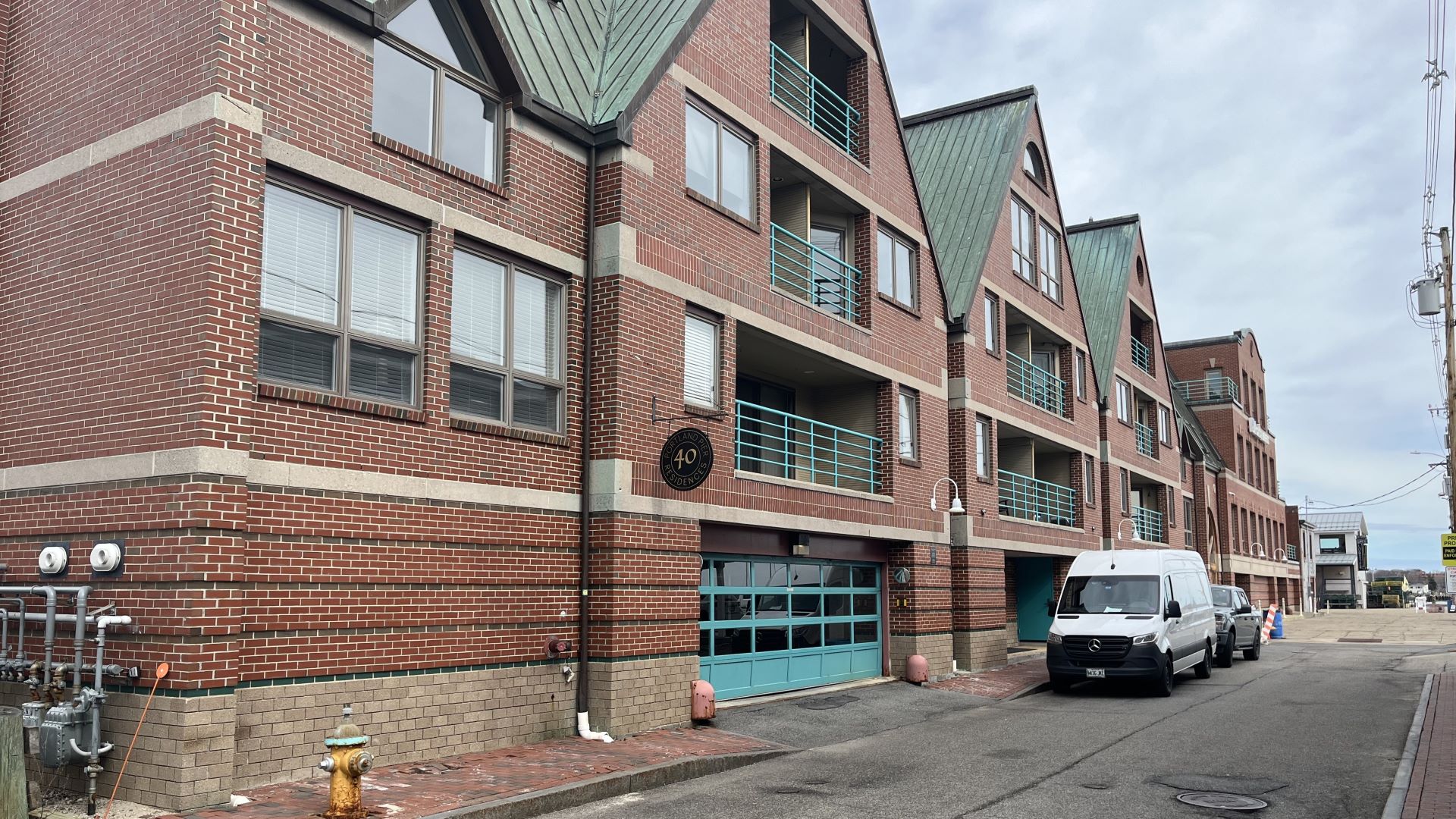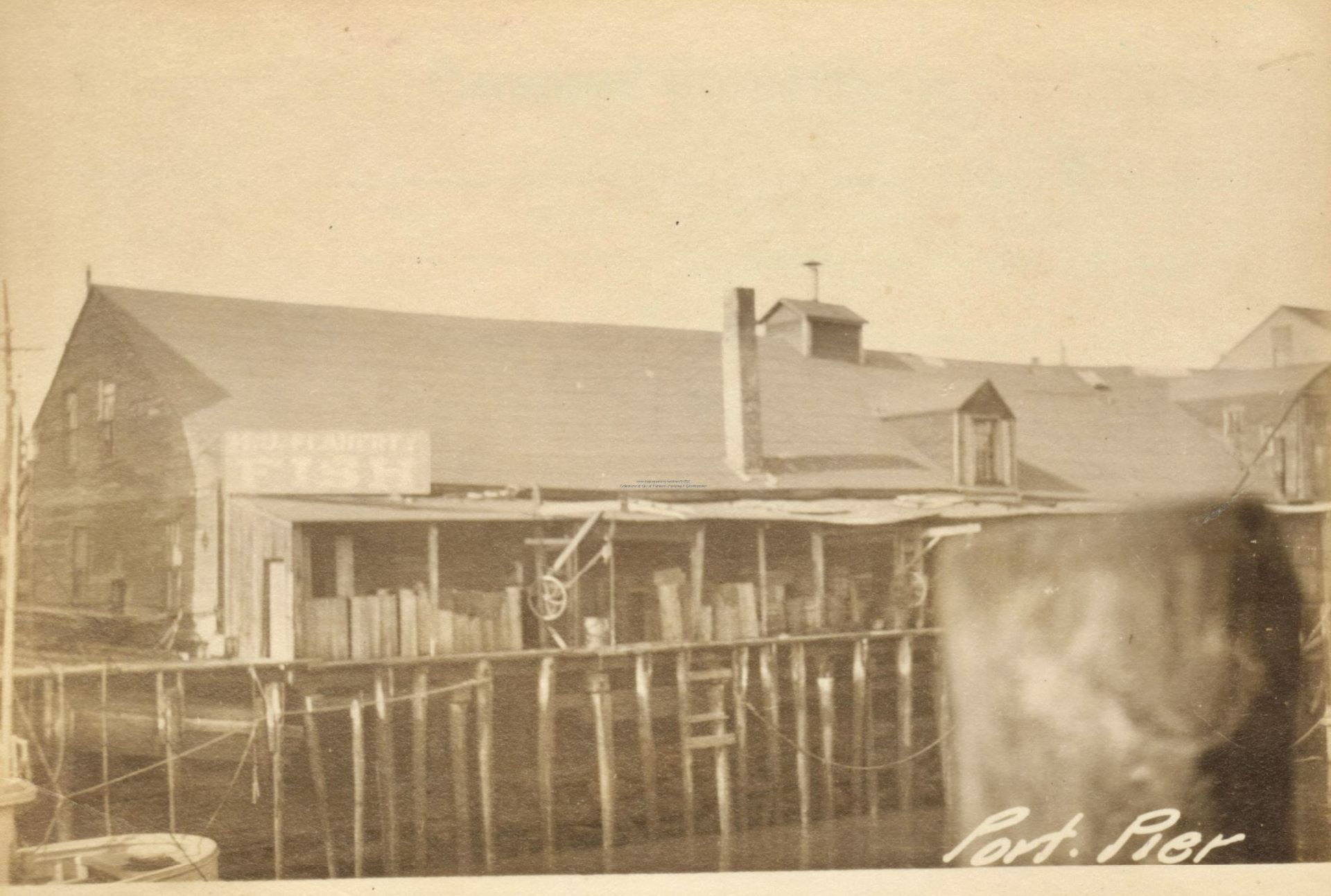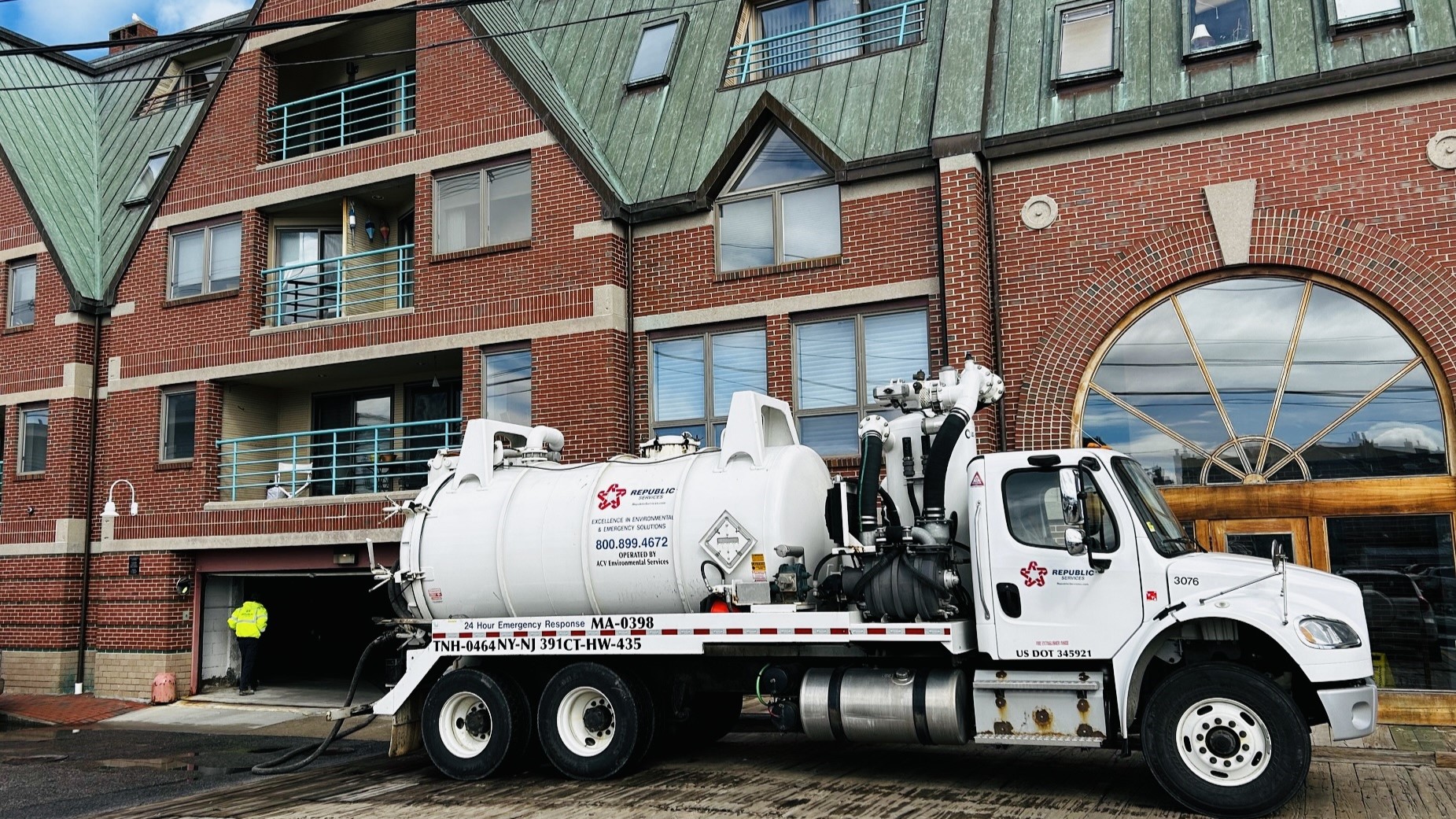John Hussey’s condo on Portland Pier has great water views from both sides of his fourth-floor windows, out to Peaks Island, and below to the fishing and pleasure boats as they come and go.
But it’s not all sunrises and sea breezes. Three years ago, Hussey’s SUV was totaled when flood waters entered the pier-level parking garage while he was away. Since then, two other residents had luxury cars ruined by the periodic high tides that cover the pier.
Now Hussey, whose primary home is in Boston, has the condo for sale. Listed last fall at $795,000, the two-bedroom unit was being offered over the winter at $749,000, and recently was reduced to $699,000.
Will a potential buyer be aware that the garage at 40 Portland Pier is at risk of flooding and cars need to be moved when high water is expected?
“You have to be honest with people,” Hussey said. “You don’t want them to come back after the fact.”
It’s true that the condo unit itself — well above the pier — stays high and dry. But the incidents of flooding in the garage? They aren’t mentioned in the property disclosure documents that home sellers such as Hussey are required by Maine law to fill out.
That’s not unusual, based on a review by The Maine Monitor of a half-dozen recent disclosure documents from prior sales at 40 Portland Pier. The disclosure document asks about “water, moisture or leakage” involving roofs, foundations and basements. Answers vary.

There is no basement at 40 Portland Pier. Three past sellers indicated they had no knowledge of water problems. One seller checked the boxes for “unknown.” Only one seller acknowledged any water issues, writing: “No basement. Garage has had water two times.”
Hussey’s disclosure left the foundation/basement water questions blank, although the document instructions specify: “Do not leave any questions blank. Strike, write N/A or Unknown if needed.”
The listing brokers for Hussey’s unit are Jean and Richard Murphy of Harborview Properties. They specialize in in-town Portland condos. Reached by The Maine Monitor, Richard Murphy was willing to discuss waterfront condo sales in general, but declined to comment on Hussey’s unit, the disclosure documents or flooding issues on the pier.
New disclosure rules pending
Reflecting a sense that Maine’s current property disclosures are lacking, buyers soon will have a new tool to help assess flood risks.
A law passed last month, L.D. 2035, mandates that sellers provide specific information about property located in a federally mapped flood hazard area. They must disclose knowledge of flooding and/or flood damage affecting the property or structures, as well as any flood insurance claims or disaster aid.
The bill was introduced by Gov. Janet Mills’ administration, and stemmed from the high volume of inquiries received at the Maine Floodplain Management Program.
“We feel this is really important for people to know, prior to making one of the biggest investments in their lives,” said Sue Baker, state coordinator for the program.
Homeowners insurance typically doesn’t cover flood damage, according to Judy East, a land use planner in the state’s agriculture department who testified at a January public hearing on the bill.
Buyers may be unaware that they need flood insurance for federally backed financing, she added, and may not realize that property outside mapped floodplains also can be at risk of flooding.
The bill was opposed by the Maine Association of Realtors. In its testimony, the trade group said sellers already are required to disclose any known defects to the property, and singling out flooding would be confusing and duplicative.
Despite that, it’s clear that many realtors who sell along the coast are tuning in to the issue of sea level rise. An industry seminar in February featured expert presentations on buying and selling homes at risk of flooding.
With the new law, Maine will join 34 states that mandate flood hazard disclosures, East testified.
It’s still unclear how current disclosure rules will be revised, according to Baker, but the law is expected to take effect in August.
Like a snowstorm
Whatever the details of the new disclosures, the prevalence of flooding would be of interest to prospective buyers at 40 Portland Pier.
The condos and attached office building were constructed in 1988 on the site of a former fuel oil company. The condo garage entrances are at a lower point of the pier.

Hussey, who also is president of the condominium owners’ association, said he can recall four instances over the 10 years he has owned his unit when cars needed to be moved. But since January, the garage has experienced four more floods.
“I don’t know if that’s unusual or an ominous sign of what’s coming,” he said.
Hussey said it costs the association $3,000-$4,000 each time to pump the elevator shaft. The group hopes to prevent another repeat with an improvised flood gate on the shaft, modeled after what the pier’s owner did for the office building elevators.
Hussey said he was selling his unit because he’s retired and can no longer come to Maine as often as he once did. Asked if flooding issues will make it harder to sell, Hussey noted similar problems in Boston that residents try to mitigate, or just learn to accept as part of being by the ocean.
“It’s a dilemma,” he said. “Maybe a place like ours will go away. But we live with it. It’s like a snowstorm. You shovel and go on.”







